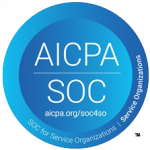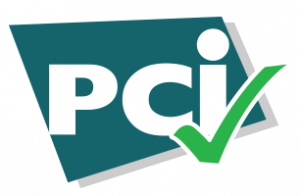
Why investing in your RCM staff is key to better outcomes for patients and providers alike
Behind every clean claim, every collected dollar, and every resolved account, there’s a person — or, more accurately, a team of people — working tirelessly to keep the revenue cycle moving. These professionals are the unsung heroes of healthcare finance, often balancing tight deadlines, constant payer changes, and growing patient expectations.
But as healthcare grows more complex, so do the pressures placed on these teams. High turnover, limited career progression, and mounting administrative burdens can take a toll. In fact, in a recent study 63% of providers indicated they were experiencing staffing shortages in their revenue cycle departments.
For leaders seeking to strengthen their operations, it may be time to reframe the question from “How do we optimize revenue?” to “How do we support the people who make that optimization possible?”
Contact Revco to see how we can integrate with your current revenue cycle operations.
Table of Contents
Streamlining Workflows with Technology to Reduce Burnout
Revenue cycle roles are often defined by manual, repetitive tasks — eligibility checks, payment posting, follow-up calls — that can feel endless. For many teams, these functions consume hours of every day, leaving little room for problem-solving, let alone optimization.
Modern RCM strategies are changing that.
Through automation, AI-assisted workflows, and smarter system integrations, healthcare organizations can now:
- Automatically verify eligibility and benefits in seconds rather than minutes.
- Use predictive tools to flag claims likely to be denied— before they’re submitted.
- Reduce redundant touches and rework.
- Automate routine follow-ups, freeing staff to focus on complex cases or patient engagement.
The result isn’t just operational efficiency — it’s a cultural shift. Technology, when thoughtfully implemented, doesn’t replace people; it amplifies their impact. When teams spend less time fighting processes by adopting automation and AI-driven tools, healthcare organizations can remove low-value, time-consuming steps from their team’s workload. Teams that once felt buried in administrative tasks can focus on activities that require empathy, critical thinking, and collaboration.
The result? A workforce that feels more engaged, less burned out, and better equipped to deliver quality outcomes.
AI doesn’t just reduce billing errors—it reshapes the patient financial experience. Health systems that adopt AI-driven billing build stronger trust, accelerate cash flow, and create a competitive advantage in patient loyalty.
Define Key Roles and Structure Your RCM Team for Success
A well-structured revenue cycle team is the foundation of an efficient, high-performing operation. One of the biggest mistakes healthcare organizations make is expecting a “one-size-fits-all” approach — asking a single biller or coder to handle the responsibilities of multiple roles. This not only leads to errors and inefficiency but also drives burnout and turnover.
Key roles and skill sets for a strong RCM team include:
- Patient Access / Front-End Staff: Insurance verification, eligibility checks, and registration accuracy.
- Billing Specialists / Coders: Accurate coding, claim preparation, and timely submission.
- Collections and Follow-Up Staff: Managing accounts receivable, patient payment plans, and denial follow-up.
- Denials and Appeals Specialists: Handling complex denials, coordinating with payers, and optimizing appeal strategies.
- Financial Counselors / Patient Advocates: Helping patients understand bills, payment options, and insurance coverage.
- Analytics and Reporting Specialists: Monitoring KPIs, producing dashboards, and providing actionable insights to leadership.
- RCM Leadership / Team Managers: Overseeing operations, coaching staff, and driving process improvements.
Each of these roles requires specific expertise and focus. Staffing adequately ensures that team members can excel in their areas without being stretched across multiple responsibilities.
Equally important is regularly reviewing performance against KPIs and organizational goals. Metrics like claim denial rates, days in accounts receivable, and patient satisfaction should inform staffing decisions, workflow adjustments, and team structure. By continually assessing and adjusting your RCM team, organizations can optimize efficiency, reduce turnover, and create a sustainable revenue cycle operation.
The right structure is not static — it evolves with your organization, patient volume, and financial goals, ensuring that each team member can thrive in their specialized role.
Opening Career Paths and Building Confidence
Patients are increasingly expecting the same level of seamless, personalized, and proactive support they upporting your RCM team means more than reducing stress — it means investing in their growth. Upskilling initiatives, cross-training, and mentorship programs can transform revenue cycle roles from transactional to strategic.
When staff members are well-trained in their roles and feel supported by management, they gain confidence, professional pride, and a clearer sense of their contribution to the organization’s mission.
Looking for real ways to assist your RCM team in their professional journey?
Offer access to:
- Online courses
- Certifications
- Mentoring programs
- Mental health support
- Training modules related to coding, billing, compliance, or even leadership skills
Forward-thinking health systems are reimagining these roles as part of a continuous learning culture — not just data entry, but data insight; not just collections, but communication.
How Revco Strengthens the Team Behind Your Revenue Cycle
At Revco, we believe that supporting the people behind the process is key to financial and operational success. Our services are designed to streamline workflows, empower your revenue cycle leadership and complement your in-house revenue cycle teams.
By partnering with Revco, healthcare organizations gain access to specialized expertise, scalable resources, and advanced technology that streamline your revenue cycle from early-out self-pay and bad debt collections to denials management and insurance revenue recovery. Our approach helps reduce administrative burden while improving cash flow and patient satisfaction.
We act as an extension of your internal staff, integrating seamlessly with your workflows to:
- Alleviate workload pressure by managing time-consuming denial management, collections, and follow-up activities.
- Provide data-driven insight through custom reporting, business intelligence and in-depth analytics that inform smarter operational decisions.
- Enhance patient communication with compassionate, compliant outreach that strengthens trust and drives resolution.
- Support long-term efficiency through process optimization and technology alignment that complements your existing systems and teams.
Revco’s focus on people-first partnership ensures that your teams can concentrate on what matters most — advancing patient care, improving outcomes, and achieving sustainable financial health.
Because when your team has the right support, your entire revenue cycle performs stronger.
Summary
At its core, every improvement in the revenue cycle — from smoother workflows to happier staff — benefits patients. When RCM teams are supported and set up for success, the entire care ecosystem feels the impact:
- Fewer billing errors mean fewer patient frustrations.
- Faster resolution times mean more predictable cash flow for providers.
- Empowered teams mean better communication and empathy in every interaction.
Supporting your revenue cycle team isn’t just good management — it’s good patient care.
Sustainable success in healthcare finance starts with supporting the people who power it.
By cultivating the right team, investing in career growth, and using technology as an enabler, leaders can create environments where RCM professionals thrive — and when they thrive, so do patients, providers, and communities.
Q&A: What Are Real Ways You Can Support The Team Behind The Revenue Cycle?
Why is supporting RCM teams just as important as investing in new technology?
Technology can streamline workflows, but it’s the people who bring insight, empathy, and strategy to the revenue cycle. Supporting teams with the right tools, training, and structure ensures technology enhances — not replaces — their expertise, resulting in higher accuracy, morale, and patient satisfaction.
What are the main contributors to turnover or burnout in revenue cycle roles?
Turnover often stems from repetitive manual work, high claim volumes, and unclear role boundaries. When staff are expected to handle multiple functions such as billing, follow-up, and denials management without proper support, engagement and accuracy suffer.
Why is supporting RCM staff so critical to revenue cycle success?
The revenue cycle is the financial backbone of any healthcare organization, but it depends on skilled, engaged professionals to function efficiently. When staff are overburdened by repetitive tasks or unclear expectations, burnout increases and performance declines. Investing in your team — through better workflows, defined roles, and professional growth — directly improves accuracy, speed, and patient satisfaction.
What does a well-structured RCM team look like?
An effective team is built around defined roles and skill sets — from patient access and billing specialists to denials analysts, financial counselors, and data reporting experts. Each role contributes to the revenue cycle’s overall health, and together they form a cohesive, efficient operation.
Can AI help patients understand their medical bills?
Yes. AI-powered tools and natural language processing (NLP) can translate complex claim language into patient-friendly explanations. This increases transparency and trust, reduces billing anxiety, and encourages timely payment.
What roles are essential for a well-structured RCM team?
Key positions typically include Patient Access specialists, Billers and Coders, Denials and Appeals experts, Collections staff, Financial Counselors, and RCM Managers. Each role serves a distinct purpose, and staffing appropriately ensures team members aren’t stretched thin, helping prevent burnout while improving operational accuracy.
How can healthcare organizations build a more supportive RCM culture?
Start by providing clear role definitions, realistic workloads, and continuous learning opportunities. Encourage collaboration across departments, celebrate process improvements, and use data to make workload adjustments. When teams feel valued and supported, turnover drops and performance improves.
How often should providers reassess their RCM team structure?
The best-performing organizations review team structures and KPIs quarterly or biannually to ensure alignment with organizational goals. As patient volumes, payer requirements, and technologies evolve, so should the team’s composition and responsibilities.
How does Revco support healthcare organizations struggling with staffing or turnover?
Revco operates as an extension of your internal team, not just a third-party vendor. We blend compassionate, compliant patient outreach with advanced analytics and custom reporting to improve financial outcomes without sacrificing patient trust. Our goal is to strengthen your internal workforce by aligning technology, process, and people for lasting success.
Contact us today to see how we can help relieve the pressure on your revenue cycle team.






